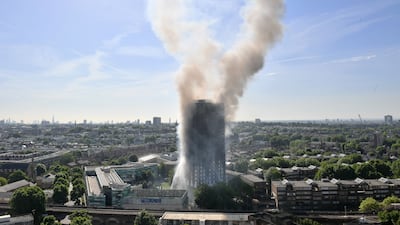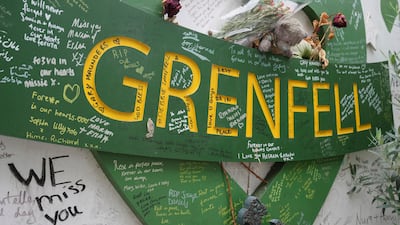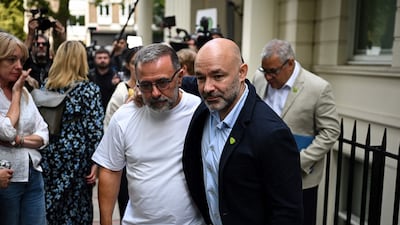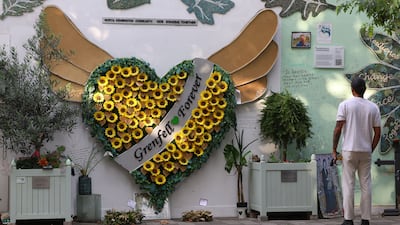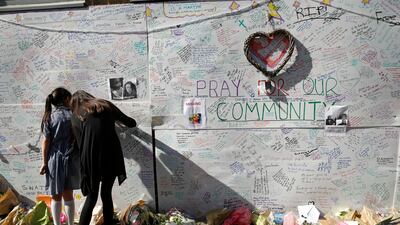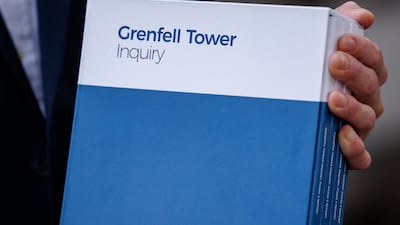The UK's Grenfell Tower fire disaster that killed 72 people in 2017 was the "culmination of decades of failure" by government and construction industry bodies, a final report from a six-year inquiry has found.
The inquiry concluded there was no “single cause” of the tragedy, saying residents were let down by dishonest companies, weak or incompetent regulators and a complacent government.
“Many failings of a wide range of institutions, entities and individuals” led to the fire, the report said. All deaths were avoidable, said retired judge Sir Martin Moore-Bick, who led the inquiry.
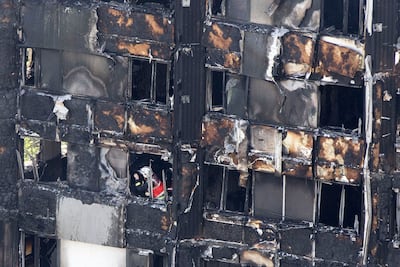
"The simple truth is that the deaths that occurred were all avoidable, and those who lived in the tower were badly failed over a number of years and in a number of different ways by those who were responsible for ensuring the safety of the building and its occupants," he said.
The report found:
- The government ignored warnings, with "many opportunities" to identify the risks posed to high-rise buildings by flammable cladding and insulation
- There was a "deregulatory agenda" within government, which led to safety matters being "ignored, delayed or disregarded"
- There was "systematic dishonesty" in product testing and marketing of insulation products
- Statutory guidance on fire tests was "fundamentally defective"
- Managing fire safety was seen as "an inconvenience" by the tower's landlords
- London Fire Brigade had a "chronic lack of effective management and leadership" and did not learn lessons from previous fires
Grenfell's multinational victims
The victims came from 23 countries and included taxi drivers and architects, a poet, an acclaimed young artist, retired people and 18 children.
Mohammed Al Hajali, who had fled Syria in 2014 and lived with his brothers in the building, was among those killed. His brother Omar described how firefighters repeatedly told them to stay in their apartments as the blaze raged.
“Mohammad and I moved to the UK from Syria to be safe,” he told the inquiry in 2020. "I still do not understand how such a dangerous building could exist in the UK. I want change to happen and I want people who were responsible for the fire at Grenfell to be honest and to be held to account."
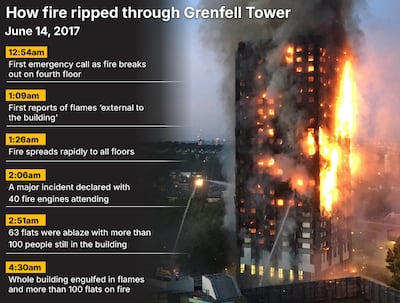
'Distrust, dislike and anger'
The final report, which ran to almost 1,700 pages, blamed the disaster on failings by the government, construction industry and, most of all, the firms involved in fitting the exterior with flammable cladding.
Other factors cited included the distrust, dislike and anger of the Grenfell Tower landlords towards its residents which led to "a serious failure ... to observe basic responsibilities", said the report.
Some occupants regarded Kensington and Chelsea Tenant Management Organisation (KCTMO) as a "bullying overlord", and a "toxic atmosphere" was "fuelled by mistrust on both sides". KCTMO had "lost sight" of the fact that residents "depended on it for a safe and decent home", and it regarded some as "militant troublemakers".
It said a fatal fire at a housing block in 2009 should have alerted the London Fire Brigade (LFB) to the shortcomings in its ability to fight blazes in high-rise buildings. The Lakanal House fire in Camberwell, south London, foreshadowed the 2017 Grenfell Tower blaze, the report said, concluding that the LFB failed to "implement any effective response" to the blaze in July 2009, which claimed six lives, despite understanding its lessons.
The report identified several key measures that should have been implemented by the LFB after that incident, including making better use of the knowledge it had gained of the dangers posed by modern materials and methods of construction, and providing regular training for its control-room operators on handling many fire survival guidance calls at the same time.
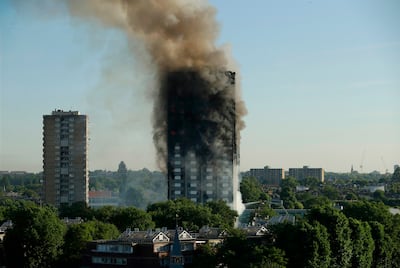
London Fire Brigade said it was now "better prepared" to respond to high-rise fires but would not be complacent.
The report also found a government drive for deregulation meant concerns about the safety of life were "ignored, delayed or disregarded" in the years before the Grenfell Tower fire.
Civil servants had felt unable to raise concerns about fire safety due to a focus on deregulation, and accused ministers and senior officials of a "serious failure of leadership" in allowing such a culture to develop, it said.
London mayor Sadiq Khan said the residents "paid a price for systemic dishonesty, corporate greed and institutional indifference and neglect".
Prime Minister Keir Starmer on Wednesday said the report had identified "substantial and widespread failings". He said: "My thoughts today are wholly with those bereaved by, and survivors of, the Grenfell Tower tragedy and the residents in the immediate community. This day is for them. I hope that Sir Martin's report can provide the truth they have sought for so long, and that it is step towards the accountability and justice they deserve."
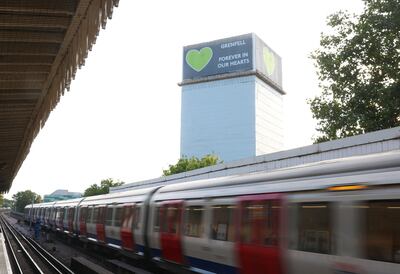
The Fire Brigades Union (FBU) called for the government to go further than the recommendations in the report, ensuring deregulation is "comprehensively reversed".
General secretary Matt Wrack said: "The FBU has always argued that the fire was the result of decades of failure by central government to regulate the building industry – the prioritisation of private profit over human life. This report completely vindicates that position, demonstrating beyond doubt that an agenda of deregulation cost lives."
The lengthy investigation into the blaze – the deadliest in Britain since the Second World War – examined how building flaws, lax enforcement of safety standards and mistakes by emergency responders contributed to the disaster.
The fire broke out in the early hours of June 14, 2017, in a fourth-floor flat and spread up through the 25-storey building like a lit fuse, fuelled by flammable cladding panels on the tower’s exterior walls.

